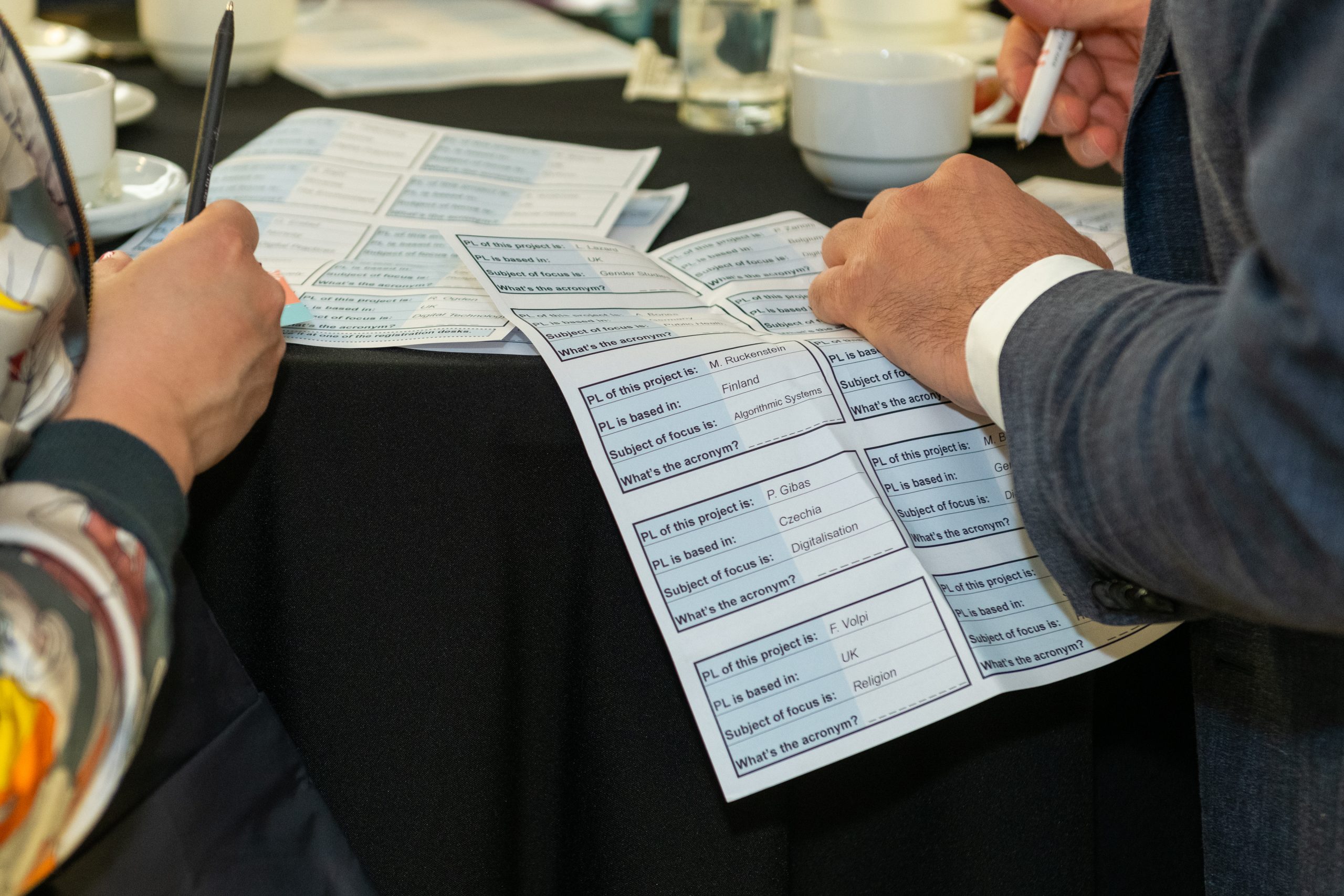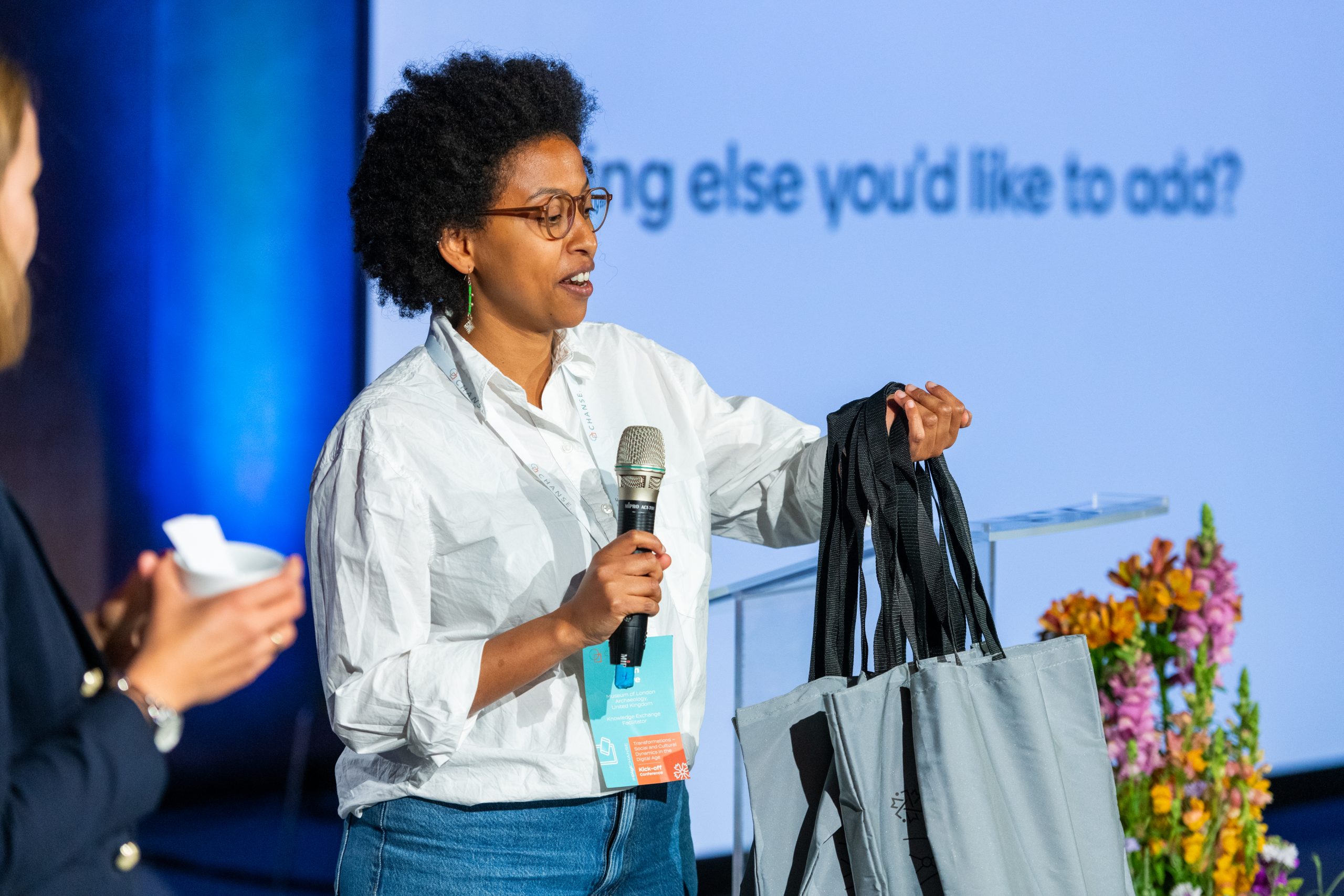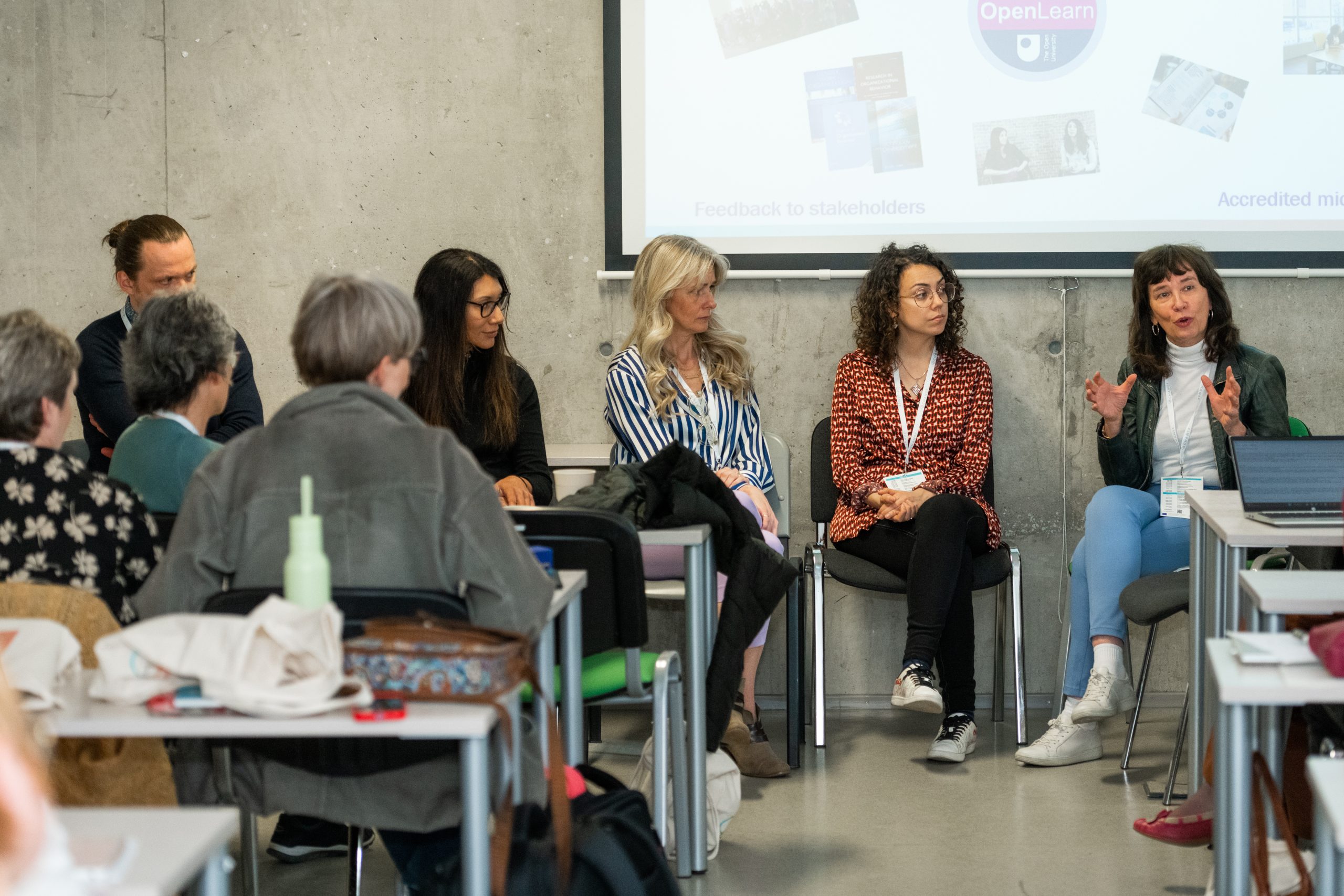The CHANSE initiative Transformations: Social and cultural dynamics in the digital age is complemented by a 3-year knowledge exchange programme bringing together CHANSE researchers, external participants and CHANSE officials across 26 projects to imaginatively explore scenarios for digital transformation. Learn more about our knowledge exchange resources and activities by navigating the sections below.
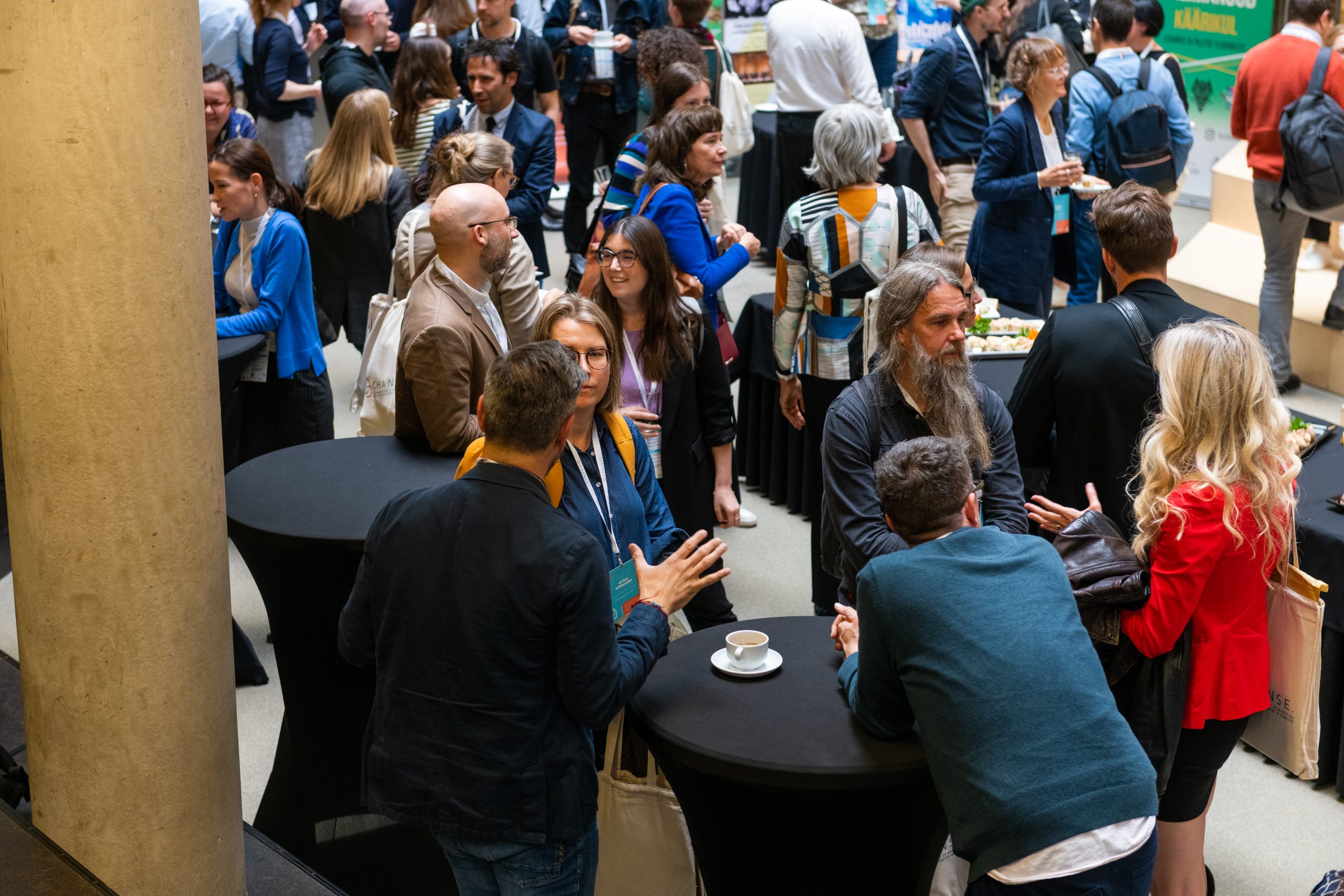
What is Knowledge Exchange?
What is Knowledge Exchange (KE)?
Knowledge exchange, or KE, is defined as multi-way exchanges between researchers and research users (audiences, other beneficiaries, policy makers, industry, charity, collaboration partners, etc.), of ideas, data and other research evidence, experiences and skills. It refers to any process through which academic ideas and insights are shared outside the university, and where, at once, external perspectives and experiences are brought into academia.
Engagement in KE is a dynamic process of listening and interaction, with a goal to generate new knowledge for mutual benefit.
What is CHANSE’s Approach to Knowledge Exchange?
As part of its commitment to facilitate knowledge exchange across the 26 projects funded under Transformations – Social and Cultural Dynamics in the Digital Age, CHANSE has commissioned a Knowledge Exchange Facilitator (KEF). The KEF role was awarded to a female-led team of transnational, mid- and early career researchers based at Museum of London Archaeology (MOLA) for a project entitled CHANSE Networks for Transformational Change . Further information about the team, about MOLA, and contact details are available here.
The KEF builds on – but does not replicate – the work of previous Knowledge Exchange Fellows, as well as HERA and European Commission activities. Relevant links and KE resources are available here.
Based on the learnings and recommendations from this previous work, the CHANSE KEF aims to:
- Map audiences across CHANSE projects
- Bring in external partners and facilitators to connect audiences & projects across the knowledge ecosystem
- Use this collective knowledge to develop future scenarios & related open access resources to shape and drive forward transdisciplinary policy change on digital transformation
The full KEF project, its aims, benefits and expectations are described here. The KEF’s activities are described under Get Involved.
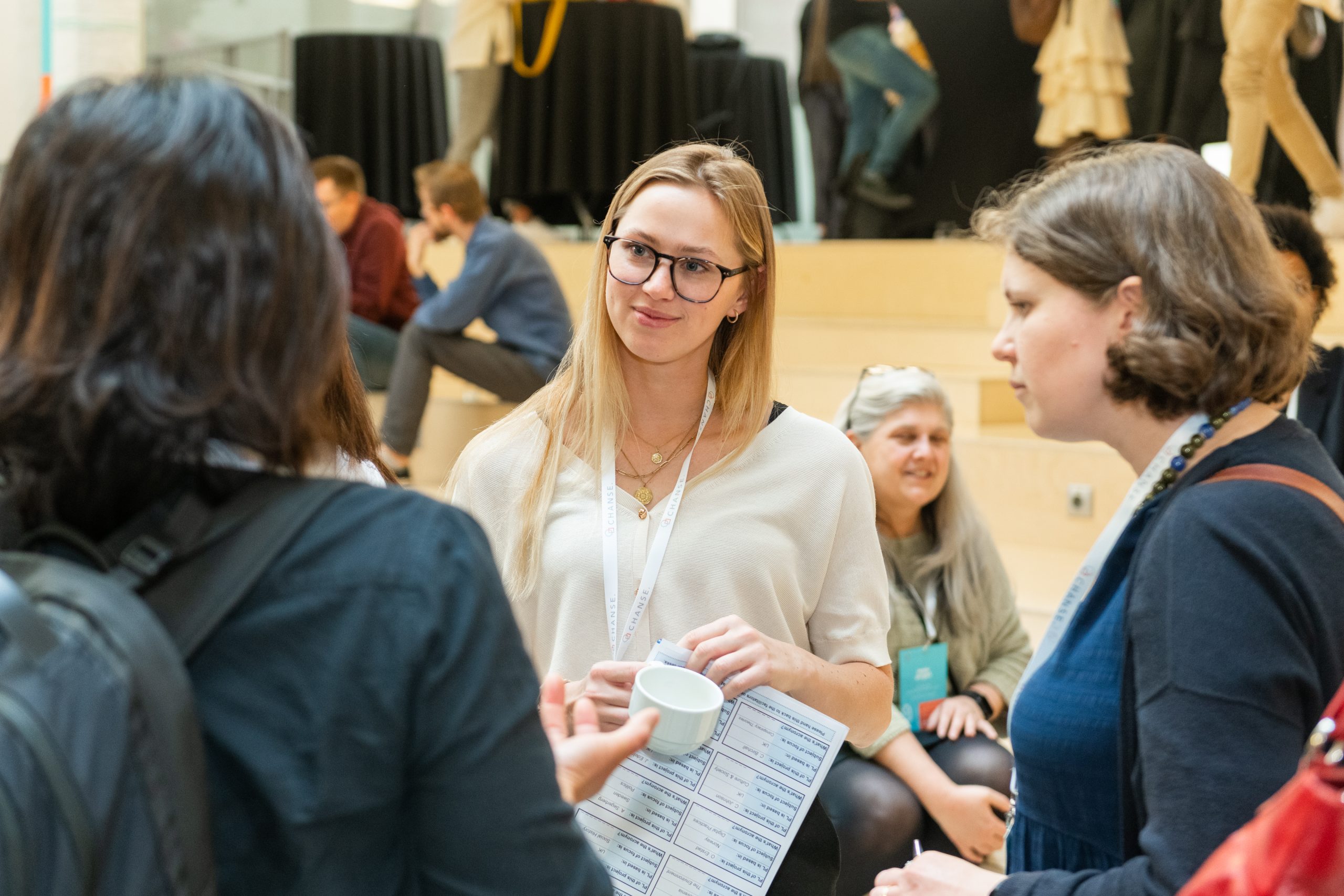
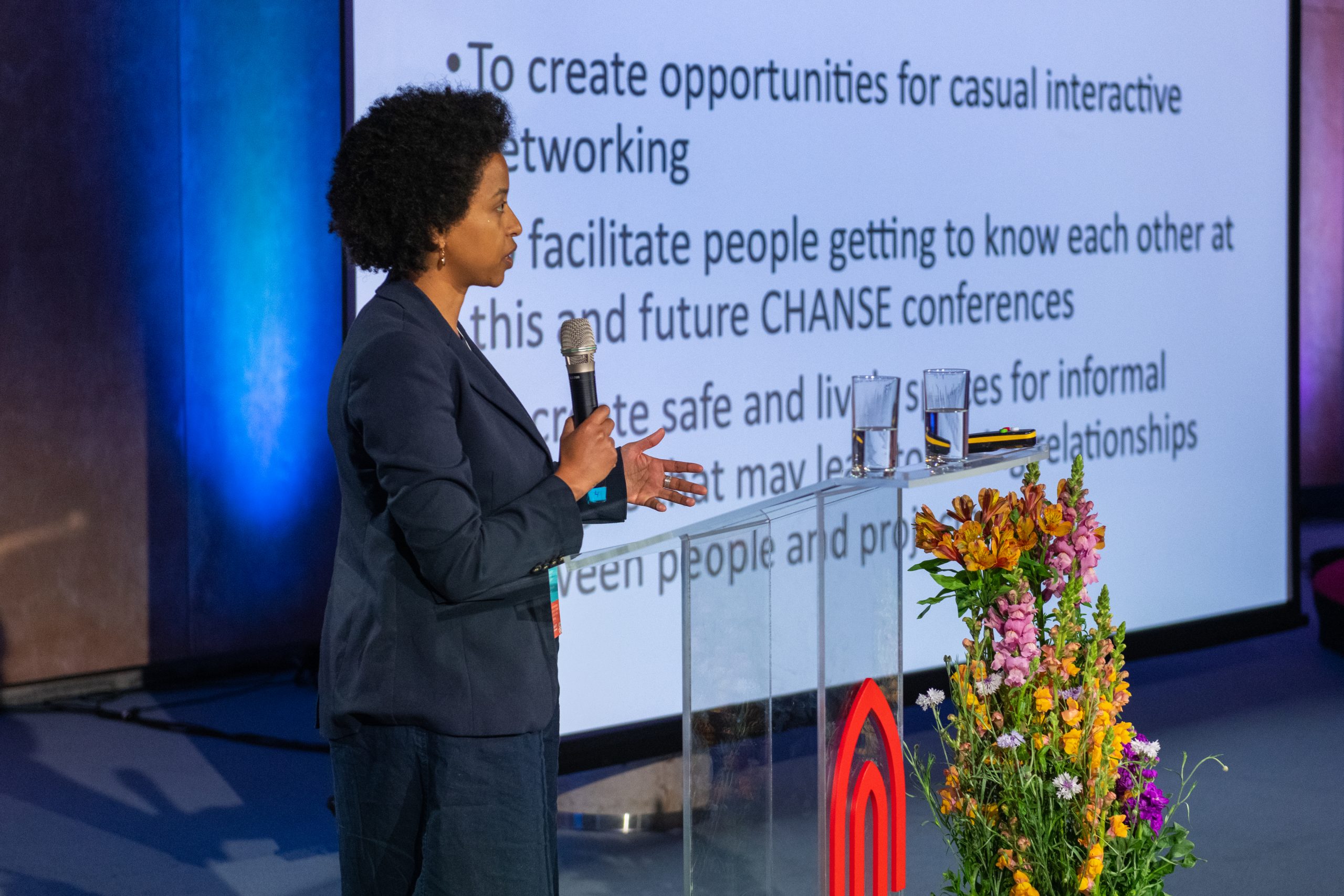
Networks for Transformational Change
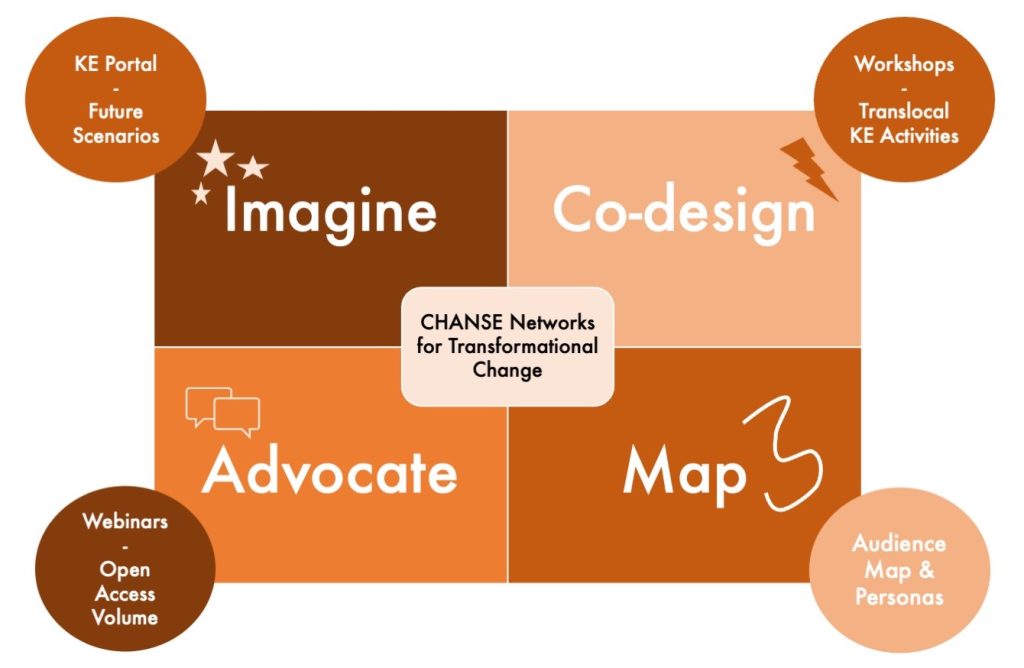
Inspired by efforts to advance democratic innovation (Whittington 2022) and radical transitions (Loorbach 2022), and guided by design justice methodologies (e.g., Costanza Chock 2020), CHANSE Networks for Transformational Change is the Knowledge Exchange Facilitator programme linking all 26 CHANSE projects. It brings together CHANSE researchers, external participants and CHANSE officials to imaginatively explore and chart current and future scenarios for digital transformation.
The CHANSE KEF aims to:
- Strengthen the cohesion of the CHANSE programme via co-designed activities bringing together, on a translocal level, project researchers, early career researchers, external non-academic participants and CHANSE administrators.
- Collaboratively map current pursuits in digital transformation over three years.
- Explore and advocate collectively for future scenarios for digital transformation to inform future research, policy and KE.
- Create playful, imaginative, equitable and safe online and hybrid spaces where such collaborative design, charting, exploration and advisory work is pursued.
CHANSE’s 26 projects are each positioned to affect policy across the European Union, to advance the crucial but often underplayed role of the Humanities and Social Sciences, and to support individual and group wellbeing, social cohesion and democratic governance. In other words, they are already primed to be enablers of change.
CHANSE Networks for Transformational Change works at a programme level to take these projects further: enabling the enablers.
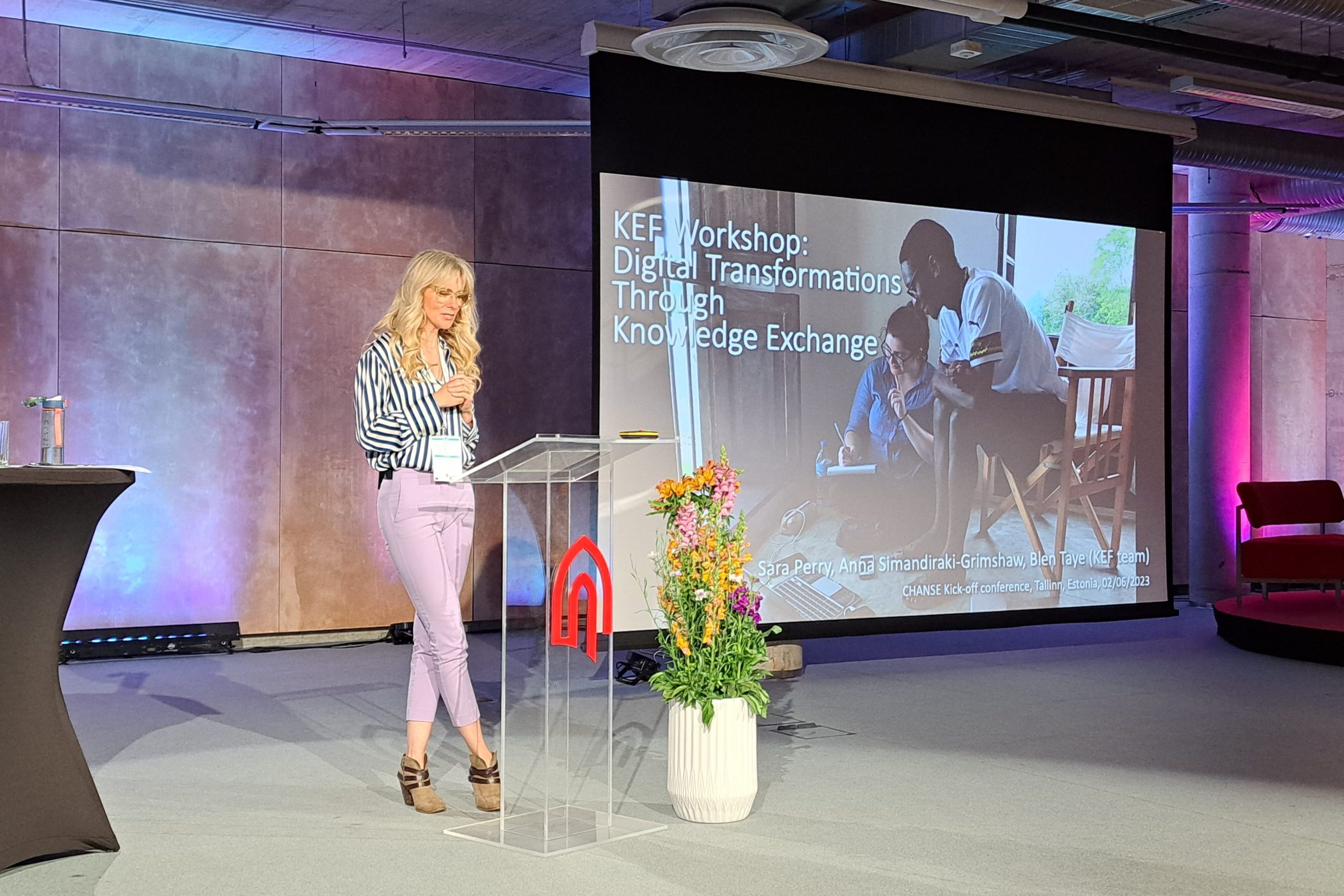
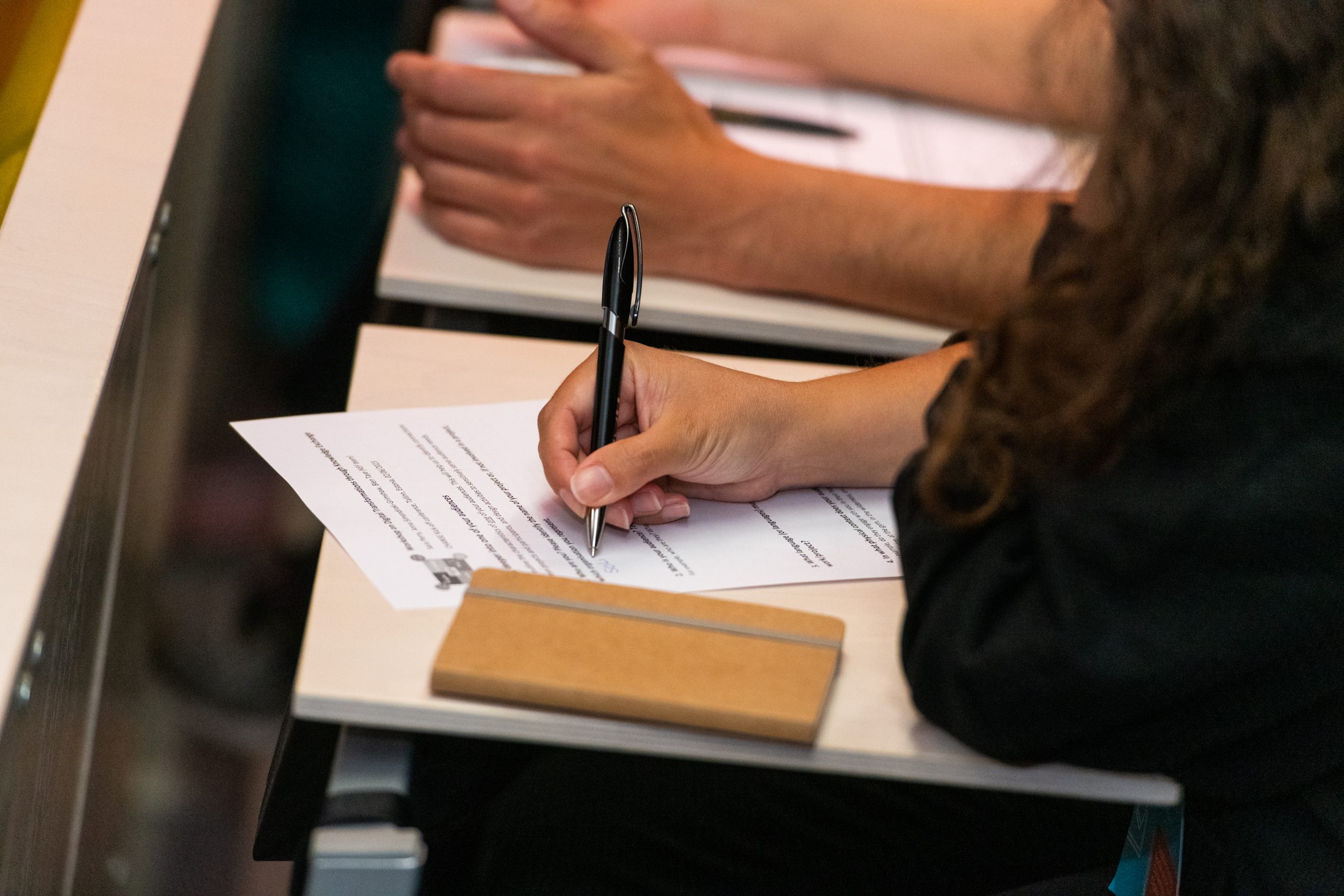
Knowledge Exchange Facilitators
The CHANSE Knowledge Exchange Facilitators (KEF) are a female-led team, comprised of transnational, mid- and early career researchers. We have extensive experience at delivering on targets related to:
- Equity, e.g. redistributing resources to those traditionally underserved, & recruiting and centring minority voices.
- Inclusion, e.g. presenting activities in engaging fashion accessible beyond academia, and navigating hurdles in transdisciplinary collaboration, i.e., language.
- Futures building, e.g. supporting collaborators in envisioning alternatives and articulating roadmaps towards pursuing different ways of life.
Who are the KEF team?
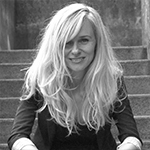
Dr Sara Perry
Dr Sara Perry is Principal Investigator on the CHANSE KEF programme, as well as Project Leader on the CHANSE-funded Transforming Data Reuse in Archaeology (TETRARCHs), and Director of Research and Engagement at MOLA (Museum of London Archaeology) where she oversees a team of more than 100 specialists. Sara was previously Senior Lecturer in Cultural Heritage Management at the University of York, where she acted as a lead on the EU-funded EMOTIVE Project, and directed heritage interpretation programmes at archaeological sites around the world, including Çatalhöyük in Turkey, Memphis, the capital of Ancient Egypt, and Kilwa and Pangani in Tanzania. As an educator, Sara has been recognised as one of JISC’s 50 Most Influential Higher Education Professionals Using Social Media, and as runner up for the Times Higher Education Award for Most Innovative Teacher of the Year. Alongside leading TETRARCHs and CHANSE KEF, she is currently Co-Investigator (Co-I) on the AHRC/Towards a National Collection-funded project Unpath’d Waters: Marine and Maritime Collections in the UK, a lead on the DCMS/National Lottery-funded Archaeology Audience Network, as well as Principal Investigator on the AHRC-funded Accelerating Impact at MOLA, an initiative distributing £450,000 over three years to non-academic partners (citizens, SMEs, charities, communities) to increase KE and the public value of archaeology.
Dr Anna Simandiraki-Grimshaw is Co-I on the CHANSE KEF programme, as well as Research Associate on the CHANSE-funded project Transforming Data Reuse in Archaeology (TETRARCHs) based at MOLA (Museum of London Archaeology). She is trained in Archaeology, Classics, History, Western History of Art, and in Education. She has extensive professional experience as an interdisciplinary researcher, educator and research facilitator, including on Impact and Knowledge Exchange (KE). She has been research-active for over 25 years, focusing on material culture studies, digital humanities and public interaction. She has lectured and designed learning materials (including on digital platforms) at 17 institutions, mostly in the UK. Her specialist and KE networks span multiple stakeholders and very varied audiences, mainly across Europe.
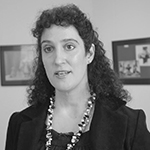
Dr Anna Simandiraki-Grimshaw
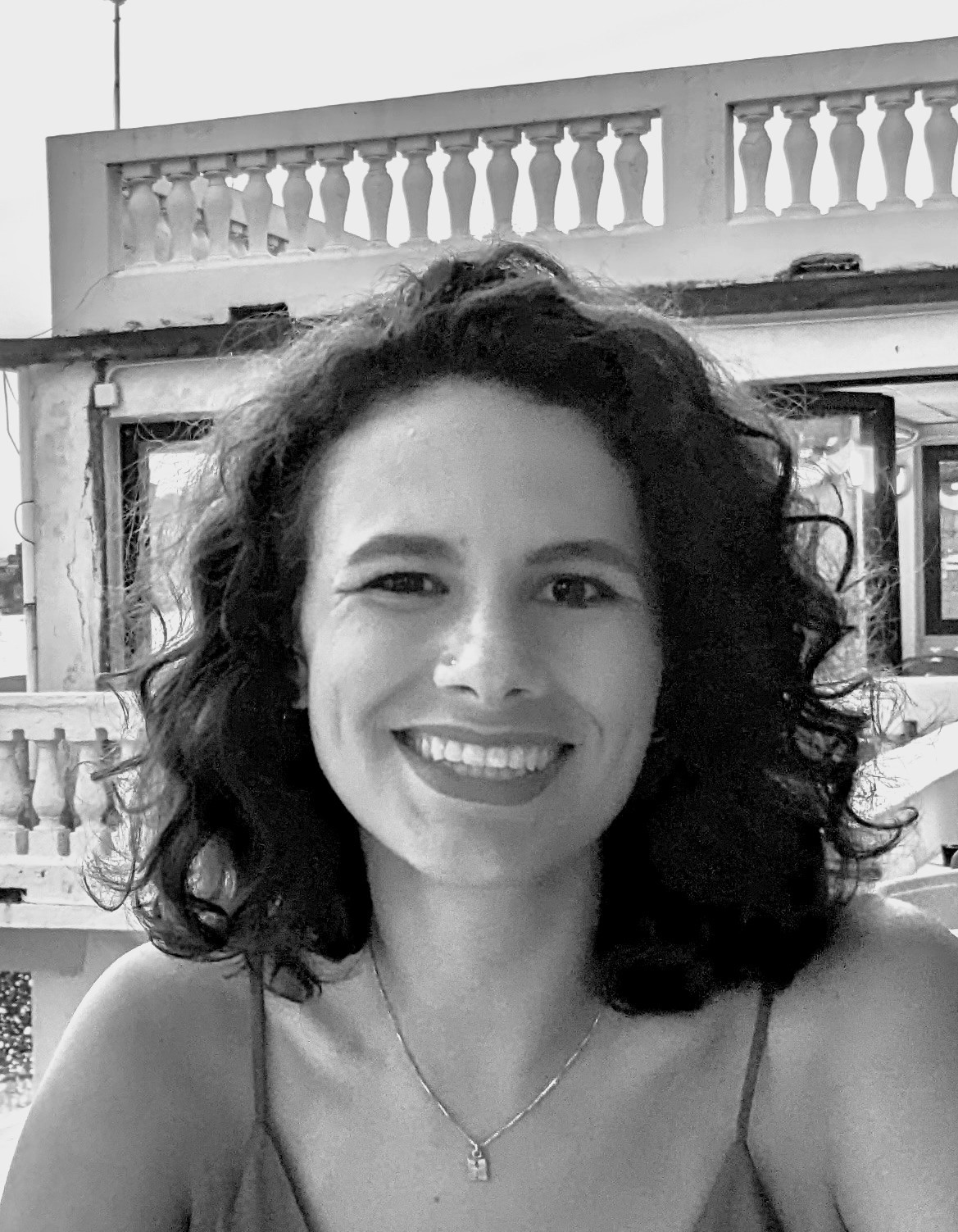
Ayesha Purcell
Ayesha Purcell, MPhil, MA (Hons), is a Research Assistant on the CHANSE KEF programme based at MOLA (Museum of London Archaeology), where her main role is Assistant Engagement Project Manager. Ayesha’s research background is in cultural exchange, religion, and social dynamics in liminal spaces in the Roman Empire and Late Antiquity, chiefly in Britain and Egypt. Her professional career is driven by the aim of exploring how the rich, diverse, archaeological resource can be used to deliver benefit for contemporary communities, especially those experiencing social injustice and oppression. This has included delivering and contributing to the development of a ground-breaking social prescribing archaeological program (Archaeology on Prescription, York Archaeology), and designing programmes for commercial developments that prioritise the needs of local communities experiencing deprivation.
Dr Blen Taye is an alumna of the KEF, having started in the Research Assistant role before accepting a full-time postdoctoral post in Belgium (September 2023). She continues to support the KEF via offering mentorship and feedback on ECR-related activities. She has experience working in multinational, multidisciplinary research projects, with partners in Ethiopia, France and the UK. She recently translated her PhD research into a guideline for conservation of endangered churches in Ethiopia. This work was done in consultation with various stakeholders and was written in Amharic and English with detailed illustrative infographics to facilitate multi-lingual conversation between heritage experts.
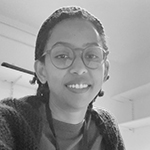
Dr Blen Taye
The KEF team is based at Museum of London Archaeology (MOLA), an Independent Research Organisation and educational charity that sits at the intersection of industry, charity, government and academia. MOLA’s interdisciplinary staff are everyday experts in navigating complex relationships between diverse stakeholders. They are Disability Confident certified, recognised for programmes that redistribute money and power to local citizens, and regularly produce campaigns reaching 100s of millions of people.
The KEF team can be reached on email at [email protected].
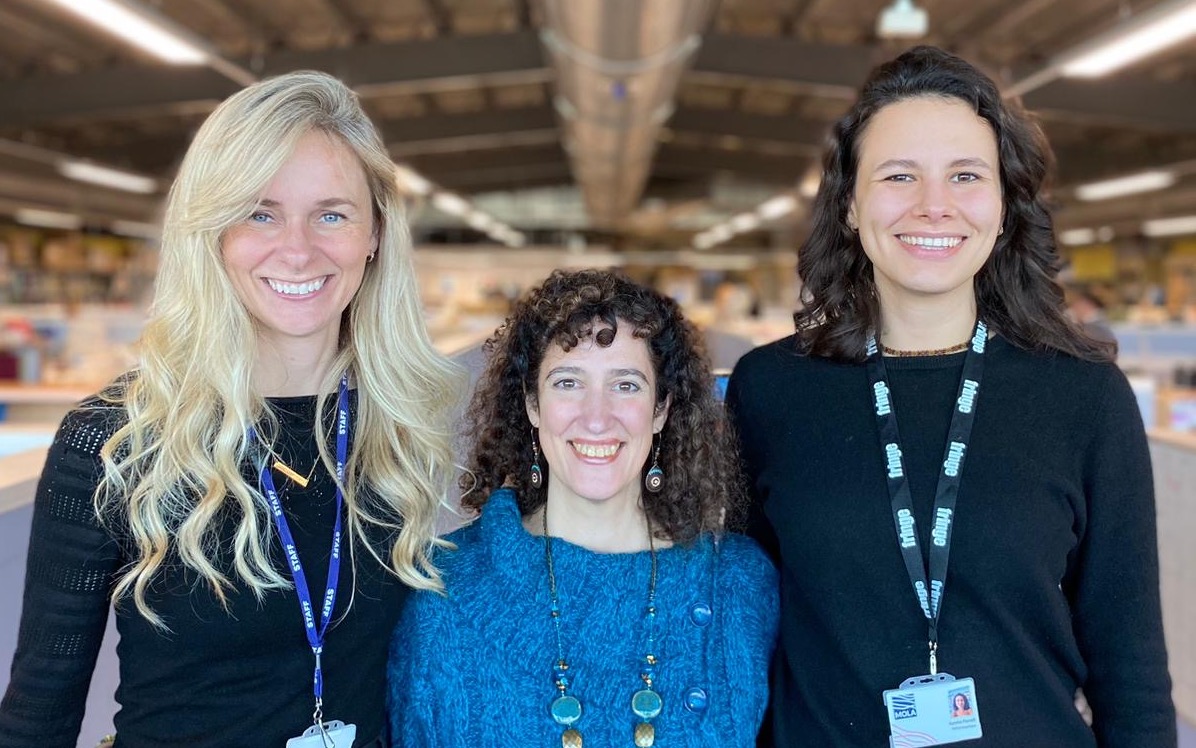
Best Practice
A variety of recent reports and resources have been produced on knowledge exchange and impact in the context of the humanities. Relevant to all fields of practice, these are high-quality, tried and tested resources for planning knowledge exchange activities and understanding best practices.
What’s on offer? A few of our favourites are summarised below, from practical guides and toolkits, to wider conceptual and economic analyses.
A comprehensive online KE toolkit, which includes several case studies as examples of good practice. It explains the differences between Public Engagement, Knowledge Exchange and Impact through clear sections that users can consult without necessarily following the order of the text. This toolkit can also be used to support both continuing professional development and reflective practice in relation to KE.
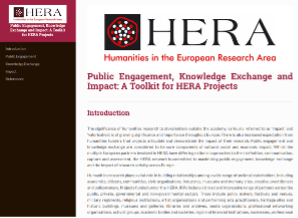
This resource can be used independently or as a ‘companion’ to the HERA toolkit. It explains what Knowledge Exchange and Impact good practice look like in the context of HERA’s four recent Joint Research Programmes (JRPs). The report is enriched with an interview, thematic case studies, graphs and other sources of inspiration, such as reference to KE Awards
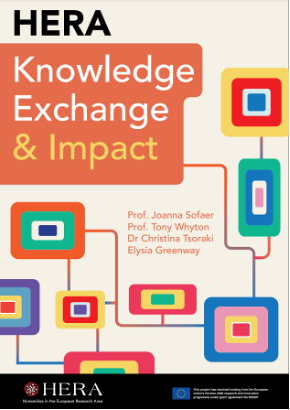
This report maps the Knowledge Exchange leveraged (towards financial, networking, capacity building, career, representational and other purposes) through the four HERA Joint Research Programmes (JRPs) between 2010 and 2022. Much of the report is technical in nature – concerned with the evaluation of these JPRs’ impact. It offers invaluable insights into how Knowledge Exchange works in practice (and can be quantified and qualified), with a particular focus on the Humanities.
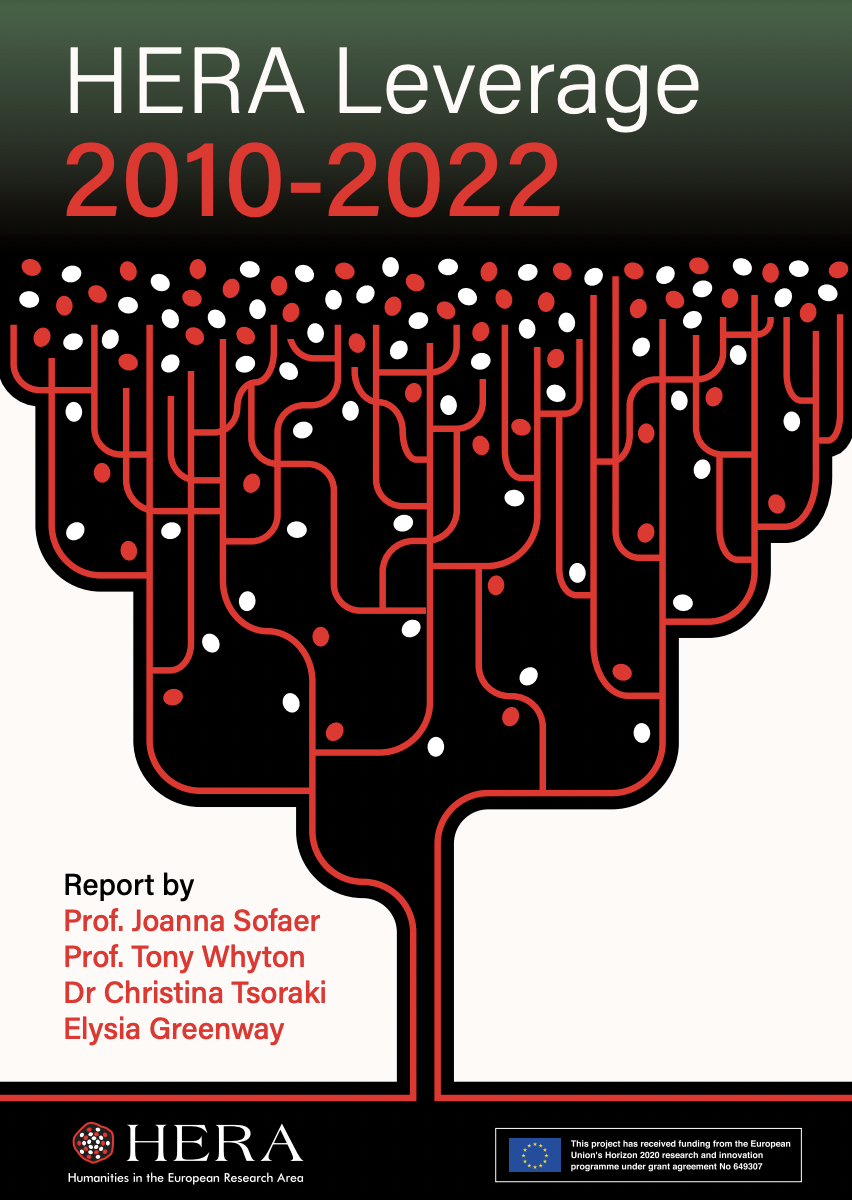
Described as a toolbox “for anyone who needs to make effective decisions, facilitate or guide effective decision-making processes, or manage or coordinate group work in development that requires the knowledge of multiple persons to succeed,” this practical guide offers high-quality suggestions, especially for engagement activities (in both pdf and web-based formats).
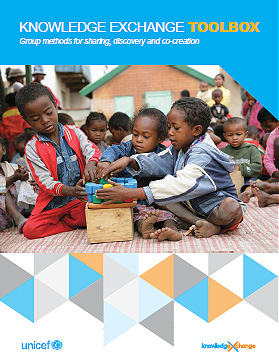
Activities
Get Involved
CHANSE Networks for Transformational Change facilitates a variety of knowledge exchange activities linking projects, external stakeholders and European citizens more broadly. These include our webinar series, workshops, reports, scenario-building, cross-project initiatives, and an open access publication. Learn more about our knowledge exchange activities by following our updates below.
How can you participate?
Anyone affiliated with CHANSE Transformations projects can join and benefit from our knowledge exchange activities. We are working to create opportunities for people to participate in different ways depending on their interest and comfort. The extent of your contributions can be decided by you. What’s planned?
- 9x roundtable discussions exploring themes identified as relevant to clusters of projects. The roundtables will run from January 2024 until Spring 2026.
- 2x in-person workshops with external stakeholders, especially wider KE and innovation organisations and Early Career Researchers, to place CHANSE themes into dialogue with wider external priorities. These workshops will take place at the mid-term and final conferences of CHANSE (September 2024 and 2025).
- Open access edited volume on transformational digital knowledge exchange for scholarly and professional readers to be published in 2026.
- Future scenarios resource intended for use by CHANSE and other policy and research agencies to structure future calls and approaches around digital transformation. The resource will be co-designed at an in-person workshop at the final CHANSE conference with interested CHANSE project team members.
- 2x bespoke knowledge exchange initiatives organised between 4 or more different CHANSE-funded projects to create new and unexpected impacts with audiences and organisations that would not have otherwise been reached. These initiatives can be funded by the KEF, and may be topped-up with funding offered by others, including external partners, in order to increase effects. They should be completed before Autumn 2025.
We are reaching out to individual projects and partners via email. If you haven’t yet heard from us, please contact us on [email protected]
